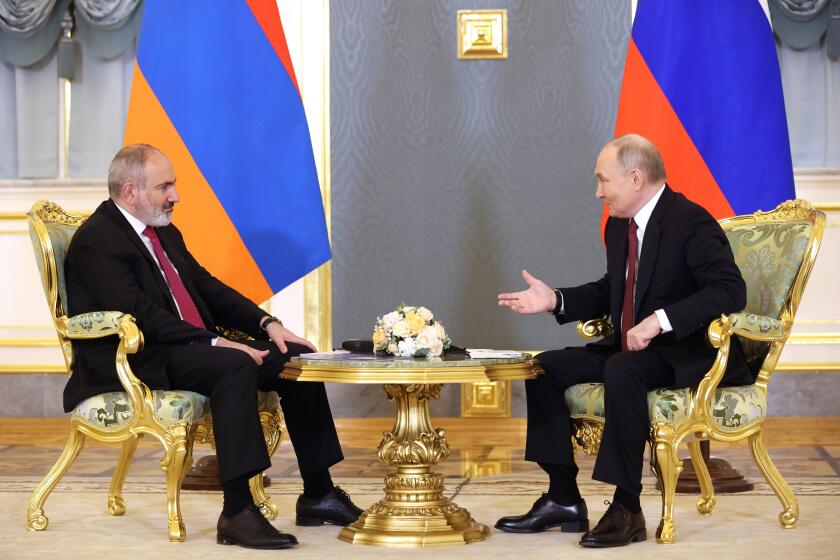Parliament Backs Major, Flexibility at EC Summit
Prime Minister John Major won a sweeping victory in Parliament on Thursday night as legislators backed his flexible approach to Britain’s role in next month’s European Community summit in the Netherlands.
During the two-day debate, Major also rejected the insistence by his predecessor, Margaret Thatcher, that Britain conduct a national referendum after the Maastricht summit, which is designed to create a new European Community treaty on political and monetary union.
The vote of confidence backing Major was 351 to 250--including Thatcher’s support--which is greater than the Conservative Party’s current majority in the House of Commons. The government had been widely predicted to win. But Major’s supporters were pleased that only four Tory MPs voted against him and only eight more abstained.
By challenging Thatcher on the referendum issue Thursday, Major appeared to be making a determined bid to come out from under her shadow and to shuck Thatcherite policies--a year after he took over from her as prime minister.
In the Commons, he rejected her Wednesday suggestion that the British electorate be asked to vote on any political or economic union that might be agreed upon at the EC summit.
The government did not intend, he said, “to hold a referendum on the outcome of the Maastricht negotiations. There is no case for one, and the government will not offer one.”
Major argued that in a parliamentary democracy, referendums are unneeded except in rare cases; voting on decisions involving Britain and the EC is not one of those, he contended.
British government leaders have said they will not agree to a proposed new EC treaty that includes wording about seeking a “federal” Europe, nor will they agree to an immediate and automatic single currency for the 12 EC members. To many Britons, the broad descriptions of a “federal” Europe suggest the usurping of Britain’s national sovereignty.
But if the points on currency and a “federal” Europe--both pressed by Germany, France and EC Commission President Jacques Delors--can be worked out in compromise language, diplomats say, Major and Foreign Secretary Douglas Hurd would sign new agreements, amending the 1957 Treaty of Rome, which is the EC constitution.
More to Read
Start your day right
Sign up for Essential California for news, features and recommendations from the L.A. Times and beyond in your inbox six days a week.
You may occasionally receive promotional content from the Los Angeles Times.






